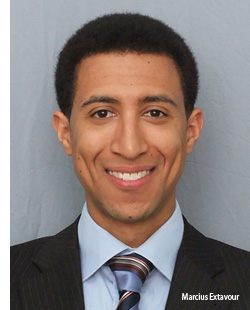
Some job seekers are hesitant to ask a potential employer to give them an informational interview. Why would any busy person agree to such a request? And why should you bother?
Informational interviews are not just a means to an end—in other words, getting a job. They can be valuable tools that inform your career choices, help you to explore new paths, and introduce you to new people. This post highlights the benefits of informational interviews for early-career science professionals as well as people changing careers and those who are simply curious about another field. It also aims to help you feel less intimidated about requesting an interview.
If your goal is to get a job
This is the classic reason for doing an informational interview: You are a job seeker reaching out to a prospective employer to discuss the employer’s work and the organization in general, rather than responding to a specific, advertised vacancy. The goal is near-term employment, and the target has already been identified as someone or someplace you would like to work for.
To set up the interview, contact a manager or hiring director to explain your interest in their work and the organization, and be sure to submit a polished resume with your request. At the interview, ask about specific ongoing projects, any new developments or trends within the organization, and whether the organization has any current or near-future plans for hiring.
If you’re looking to explore a new field
Informational interviews can be a great way to test the waters of a new area of interest and to expand your network.
Start by contacting any individuals in the new field with whom you have come into contact, or representatives from organizations you are familiar with. These could be the same people or groups who first engaged your interest in the field. If you are well acquainted with any professionals in your field of interest, contact them first.
If not, do not be afraid to reach out to strangers. Just be sure to make it clear that you are seeking information, not direct employment. In preparing for the interview, focus on clearly articulating why you are interested in the area, what skills from your present work might be transferrable, and why you are looking to shift into a new field. Prepare a resume beforehand, but be ready to modify it after the interview based on what you learned. (You can even seek direct feedback on your resume itself at the interview. This is an exploratory interview, after all!)
Ask questions about the work environment at particular organizations and/or the general culture of the field of interest. And make sure to ask for recommendations of other people or organizations you can follow up with. Referrals from professionals in the new field can be one of the most valuable outcomes of such an interview.
If you aim to identify options or narrow your focus
Finally, and especially for graduate students and post-docs, informational interviews can be a great source of professional advice, mentorship and exposure to the many professional options in front of them. Mentorship is a great asset, but mentors can be hard to find. Informational interviewing is a great way to meet people whose work you admire, and who in turn may take an interest in your aspirations.
Seek advice for interview candidates from your peers, advisors, family and friends. People who love what they do usually also love to talk about it, so they are likely to be receptive to interview requests. Ask people how they got to where they are now. What steps did they take? What pitfalls did they avoid—or overcome and learn from?
Also, ask individuals representing specific organizations for advice on how your skills and experience can be best applied to their work and what additional skills you might want to acquire. This type of an interview might be formal, with an individual whom you do not know personally, or it could be informal, with an acquaintance whose career path appeals to you. Even informal lunch dates, telephone conversations, or e-mails can yield valuable information that helps you to generate new ideas and leads, or points you to relevant reading material to pursue on your own. Again, be sure to ask for referrals.
Parting thoughts
At an informational interview—unlike a traditional job interview—you must be prepared to lead the discussion. Approach the interview with a healthy list of questions. You need not follow a script—you are mainly there to listen and learn. Even so, have your questions ready. Also, remember that you are asking a favor of someone, so be grateful, courteous, punctual and direct. And brave. Good luck!
Marcius Extavour, most recently a quantitative risk analyst at Ontario Power Generation, is currently serving on Capitol Hill as the OSA/SPIE Arthur H. Guenther Congressional Science and Engineering Fellow.
